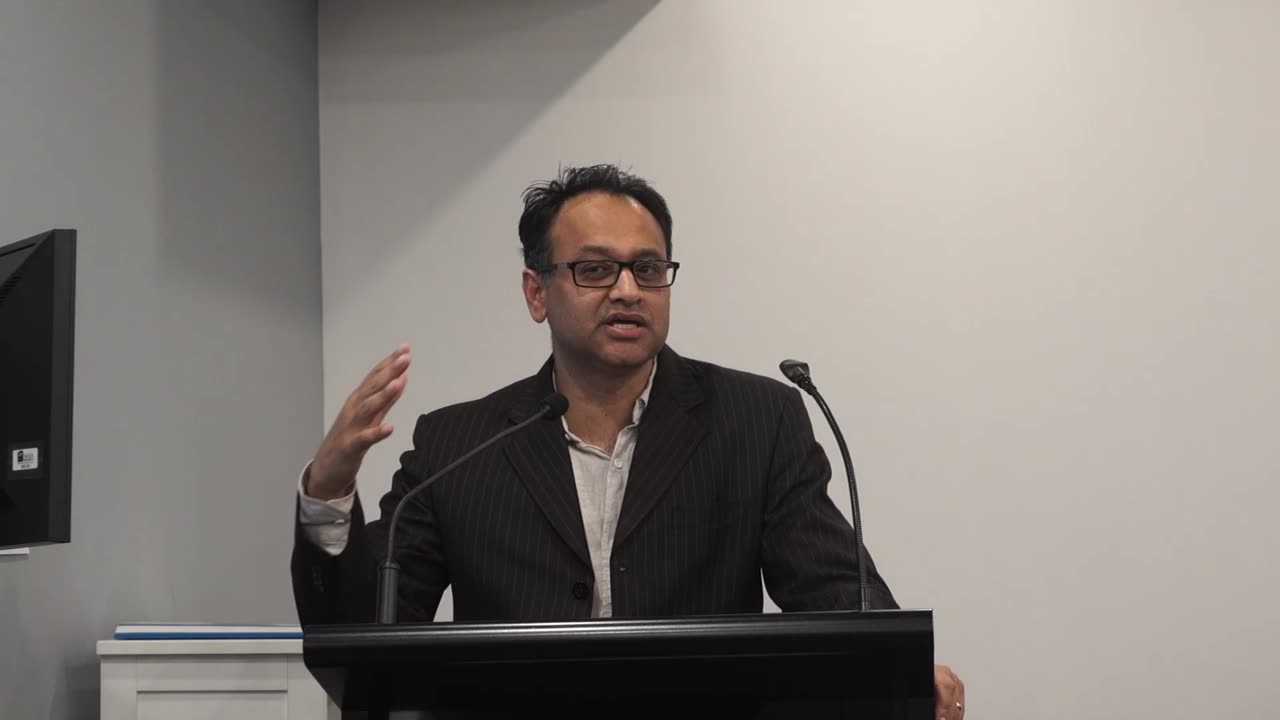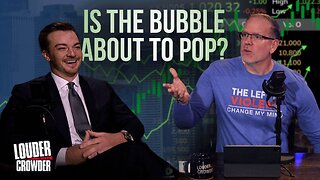Premium Only Content

Dr Tanveer Ahmed: Euthanasia - Moral Decay?
SUMMARY:
------------------------------
I was genuinely energised watching Dr Tanveer Ahmed's contribution to this panel — he brings a clinician’s sharpness and a writer’s curiosity to one of the hardest debates of our time: euthanasia and what he calls the signs of moral decay. As a practising psychiatrist and commentator, Dr Ahmed refuses simplistic answers. He challenges the idea of “rational suicide”, explains why psychiatry typically sees suicide as pathological, and situates today’s arguments within a long cultural and historical view where suicide and end‑of‑life choices were understood very differently. He also draws on forensic and clinical experience — including a moving nursing‑home anecdote — to show how real families, suffering and medical practice intersect with legal and ethical choices. Throughout, he asks us to consider broader social currents: how mental health has taken on new cultural meaning, and how that shapes policy and personal decisions about death. If you care about ethics, law, psychiatry or end‑of‑life care, this talk is lively, thought‑provoking and deeply humane — please watch, share and join the discussion.
RUMBLE DESCRIPTION:
-----------------------------------
This is a must‑watch panel talk from Dr Tanveer Ahmed — psychiatrist, author and columnist — as he tackles euthanasia, “rational suicide” and what he describes as moral decay in contemporary debates. Speaking with the clarity of a clinician and the nuance of a social commentator, Dr Ahmed explains why psychiatry typically frames suicide as pathological, and why the very idea of a rational, autonomous suicide is so challenging inside medical science. He moves beyond abstraction to give historical and cultural context, showing how understandings of suicide and honourable death have changed over time and how that history can inform current euthanasia conversations.
What makes this talk particularly compelling are the real‑world clinical insights: Dr Ahmed shares forensic and bedside experience — including a memorable nursing‑home case — to show the human complexity behind legal and policy debates. He also explores wider social currents — how mental health has become a cultural touchstone and how that reshapes public attitudes toward end‑of‑life decisions and legal reform.
This is not a sermon for one side or the other. It’s a thoughtful, humane intervention that invites public debate, ethical reflection and better policy thinking. If you’re interested in psychiatry, end‑of‑life care, ethics, law or Australian public life, you’ll find this talk illuminating and emotionally resonant. Watch, leave your thoughts below, and don’t forget to subscribe for more panel talks and analyses. Timestamps and related links in the comments.
⚠️ CONTENT DISCLAIMER ⚠️
The views, opinions, and statements expressed in this video are those of the individual speaker(s) and audience members. They do not necessarily reflect the views, opinions, or positions of Western Heritage Australia or its affiliates.
This content is presented for educational and informational purposes as well as to facilitate public discourse on important social and political issues. We provide a platform for diverse Australian voices to be heard, to assist the public in forming their own informed opinions.
Western Heritage Australia does not endorse, verify, or take responsibility for the accuracy of statements made by speakers. All claims, statistics, and opinions remain the responsibility of the original speaker. Viewers are encouraged to conduct their own research and consult multiple sources when forming opinions on these topics.
This video may contain strong political opinions, controversial viewpoints, strong language, or mature themes. Viewer discretion is advised.
-
 LIVE
LIVE
Putther
5 hours ago $3.61 earned🔴LAZY SUNDAY STREAM!! (GTA + MORE)
128 watching -
 30:13
30:13
Congressman Randy Fine
5 hours agoCongressman Fine Virtual Press Conference on the Democrat Shutdown
39.1K74 -
 LIVE
LIVE
GritsGG
7 hours agoQuads Into Ranked Top 30! Most Wins in WORLD! 3734+!
101 watching -
 53:29
53:29
Tactical Advisor
7 hours agoUnboxing New Guns | Vault Room Live Stream 042
125K11 -
 56:20
56:20
Steven Crowder
1 day agoEXPLAINED: Is America Headed For a Market Crash?
168K112 -
 LIVE
LIVE
S0lidJ
4 hours ago🟢Live -S0lidJ - This Game Is A Blast
11 watching -
 21:38
21:38
Professor Nez
8 hours agoHE'S BACK! Elon Musk EVISCERATES Biden Judge Over Big Balls Verdict
33K57 -
 19:39
19:39
TimcastIRL
1 day agoTim Pool Wins $1 Million Bet During Debate Against Liquid Death CEO
250K113 -
 LIVE
LIVE
ttvglamourx
8 hours ago $5.28 earnedHAPPY SUNDAY<3 !DISCORD
73 watching -
 13:50
13:50
Nikko Ortiz
1 day agoStop Hurting Yourself For Views.
72.7K22